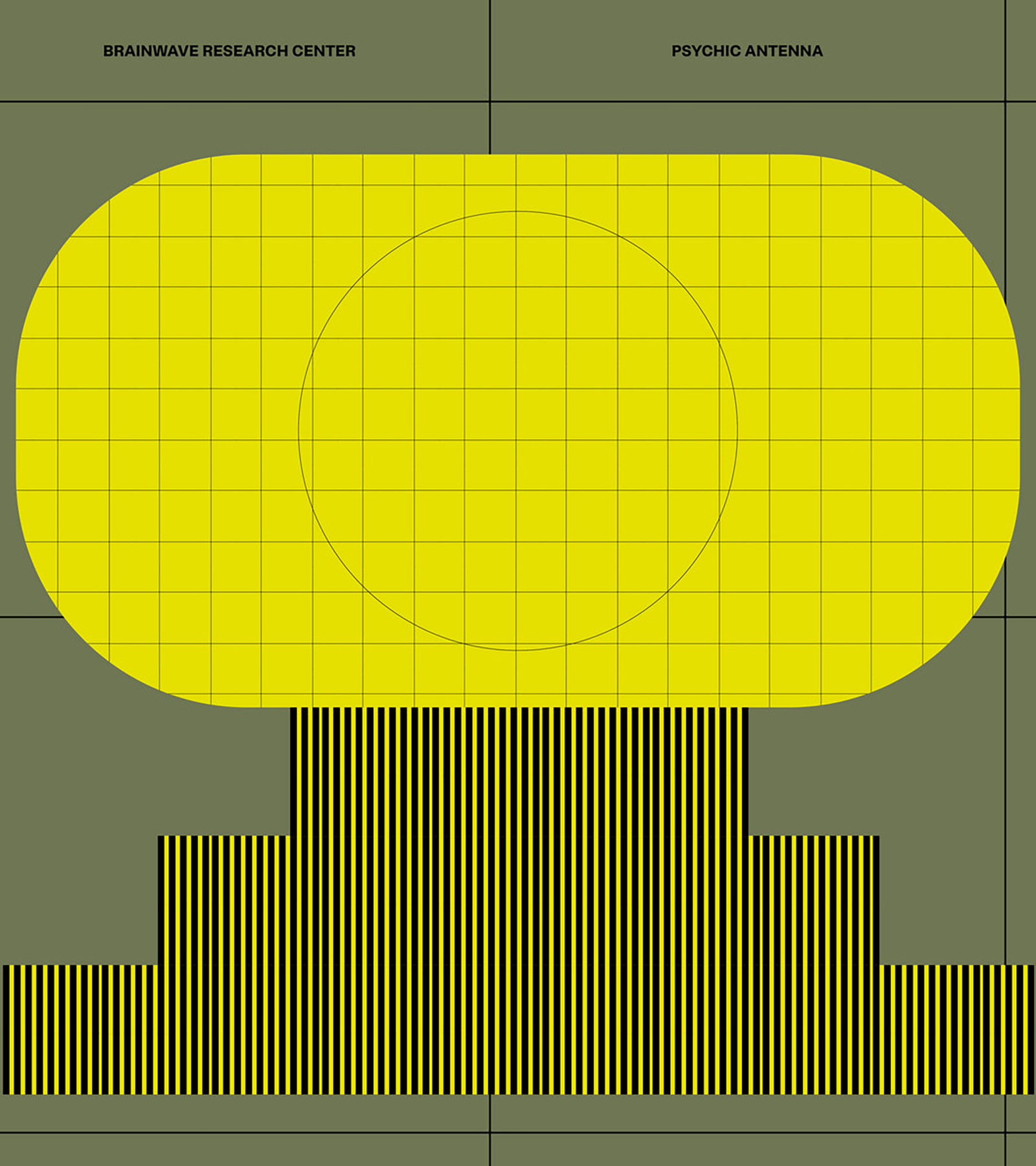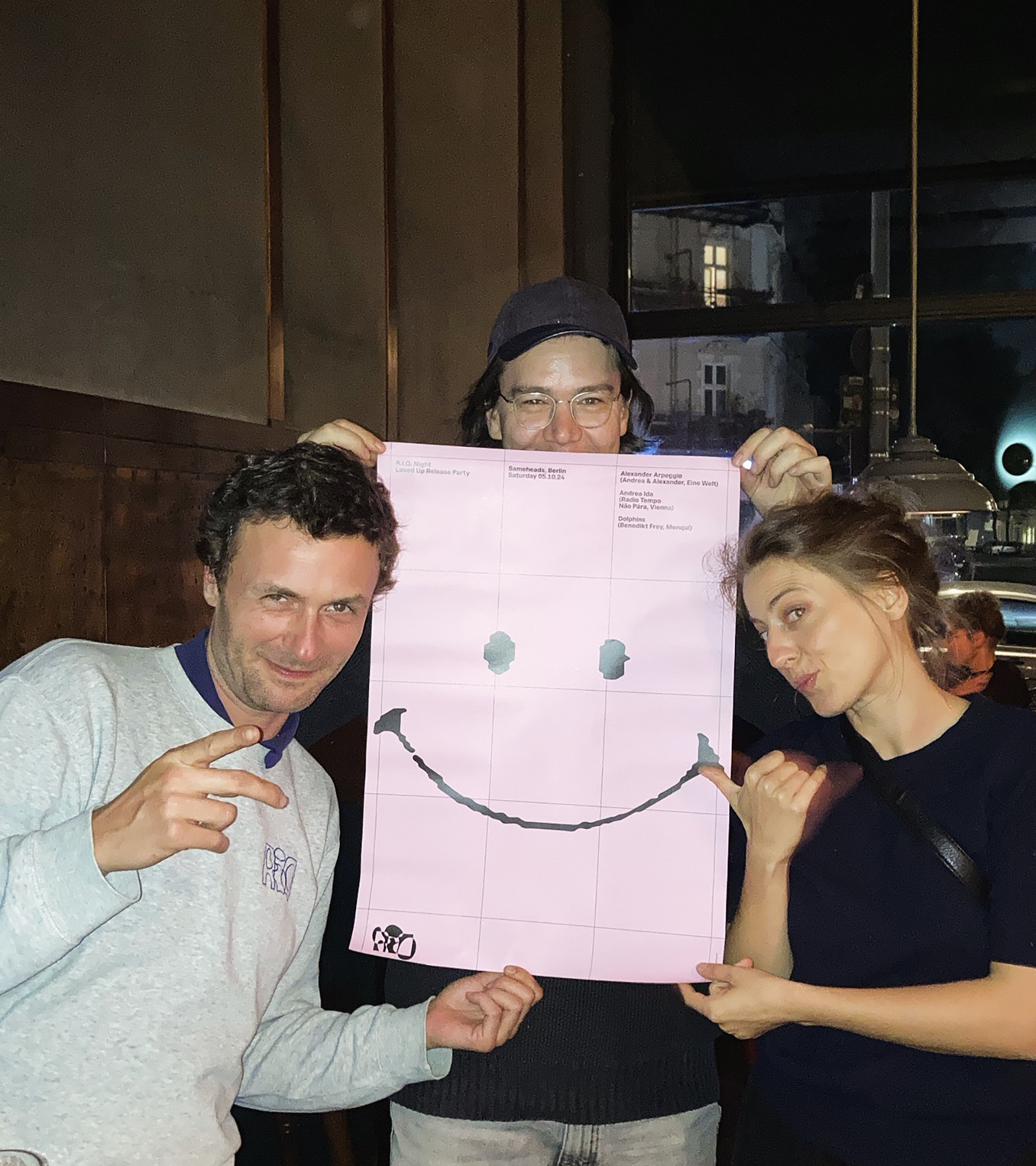№ 137
Next up at EDWIN MUSIC CHANNEL is Berlin-based producer and DJ Benedikt Frey and his close friend Menqui, with whom he co-runs the label R.i.O.
Your browser is no longer supported. For the best experience, please upgrade to the latest version of Chrome, Safari or Firefox
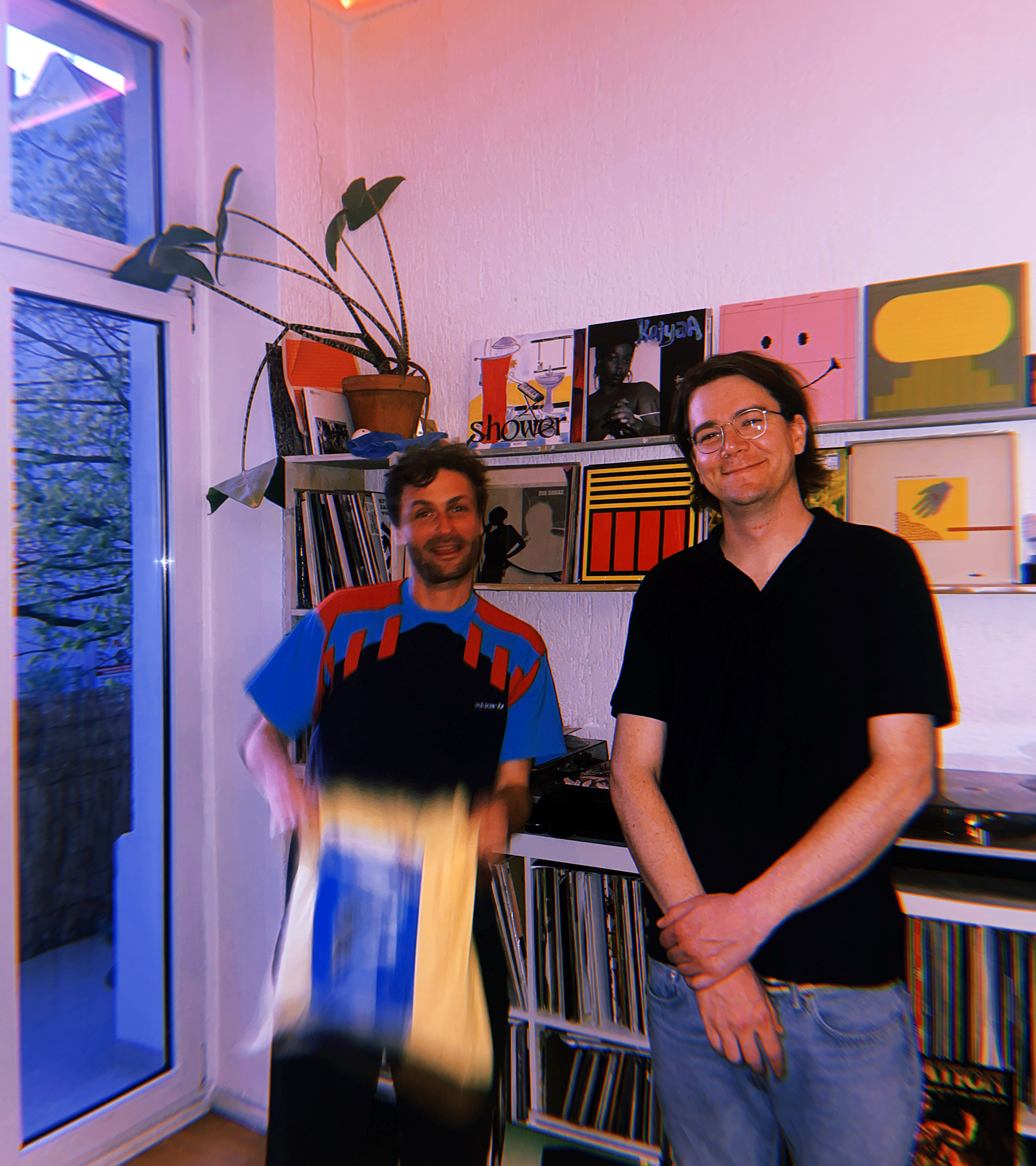
Next up at EDWIN MUSIC CHANNEL is Berlin-based producer and DJ Benedikt Frey and his close friend Menqui, with whom he co-runs the label R.i.O.
Renowned for his diverse take on electronic music, seamlessly blending elements of techno, dub, ambient, house, and experimental sounds, Frey’s work is characterised by a cinematic quality, where harmonic motifs interconnect with unique rhythmic configurations, creating immersive auditory experiences. Central to his artistic endeavours is currently the label R.i.O., which he co-founded with his partner Nadia D’Alò and longtime friend Menqui in 2019.
It serves as a platform for varied electronic music, showcasing both their own projects like Init or Dolphins, as well as music of like-minded artists like Philipp Otterbach, Chris Imler, or Brainwave Research Centre. The label's releases exemplify its commitment to pushing creative boundaries and widening the depths of electronic soundscapes into uncharted dimensions. Frey's collaborative spirit is evident in his numerous partnerships. With Nadia D’Alò, he forms INIT, known for their dynamic performances that oscillate between dark-ish pop and dancefloor-leaning arrangements. His collaborations with artists like Tim Toh or Christopher Cox have resulted in innovative projects that blend genres and challenge conventions. Notably, his remix works of tracks by famed synth-wave legends Die Gesunden or contemporary acts like Brainwave Research Centre or Shari Vari showcase his ability to reinterpret and breathe new life into existing compositions.
For EDWIN MUSIC CHANNEL, he joined forces with his friend Menqui, who is overseeing the administration for the R.i.O. label, is part of the Berlin-based Muting The Noise Record Store and Distribution crew, runs a radio show for Cashmere Radio and plays regular in all those small, but delicate Berlin bars and little dancefloor venues. Together they prepared an epic mix, created live and direct in Menqui’s living room, featuring all sorts of music from pop, Trip-Hop, and Hip-hop to free-tripping electronic grooves. Check the groove and read below what Benedikt Frey and Menqui told us about their history, work, label, and future plans.
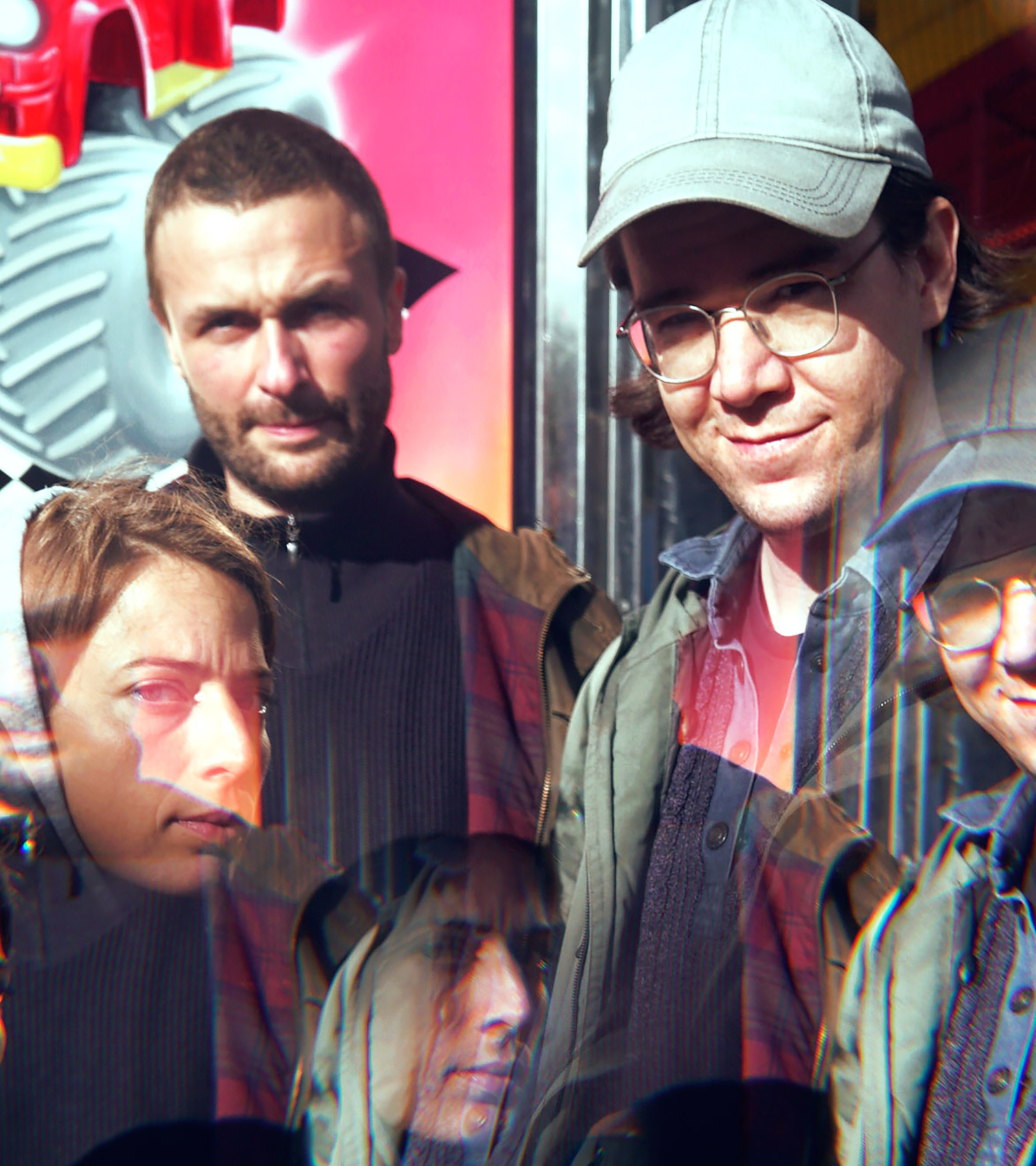

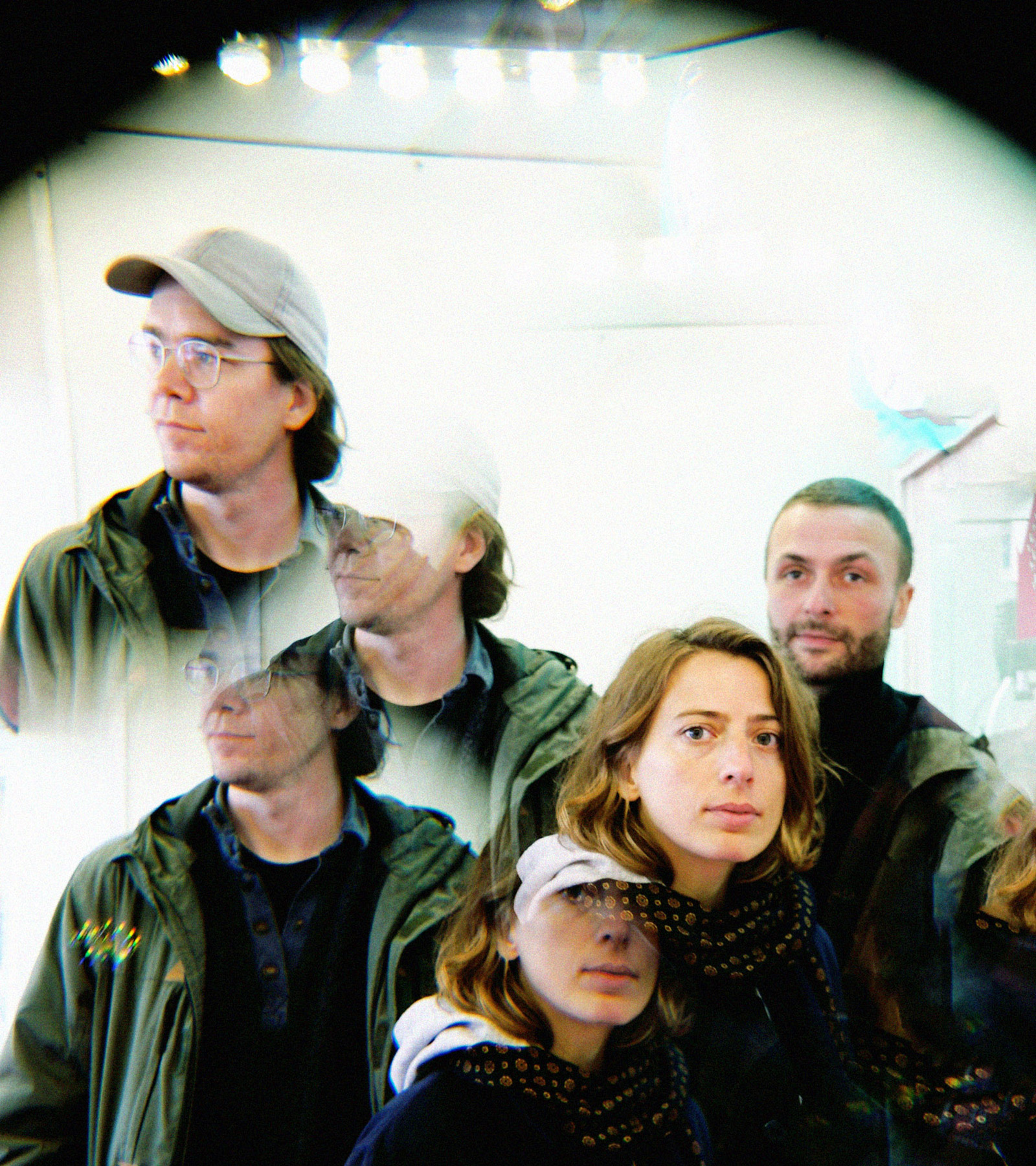

Q. Can you tell us a bit about the story behind the mix? When was it done, and what do you want to transport on this journey?
A. We met at Menqui’s apartment, and it was recorded on two turntables and two CDJ's. Aiming for nothing but a GOOD TIME.
Q. The mix is almost four hours long. How come and does this length also reflect your way of djing??
A. It was one of the first sunny days of the year, and we ended up soundtracking it. The vibe was all about slow cooking - no rush, just letting things simmer. That pace gave us the perfect window to really dial it in and record the set with the right balance.
Q. Benedikt, how would you describe your musical evolution since you first started producing, and what key influences have shaped your sound?
A. I’d describe it as a naturally growing interest in music. Diving into different genres, their unique approaches, and where they come from feels like an endless stream of discovery - and that’s what keeps me excited. Life should be thrilling, right? I first got into Drum and Bass around 2003 - 2006. Eventually, the music lost its spark for me - everyone seemed to be chasing the same sound, trying to be the next Sub Focus or Pendulum. I struggled with production, especially with the complexity of the rhythms, but in 2018, I got to revisit that early passion with my first Dnb-influenced release on Craigie Knowes.
After burning out on that “maximal” sound by the end of 2006, I found myself drawn to the opposite: Minimal and Dub-Techno. I got really into analysing how those tracks were produced. I realised that even just a simple kick drum from a record had a vibe I couldn’t replicate in my sequencer. That mystery hooked me. By around 2009, I shifted into all sorts of House music. That eventually led me to Acid Techno and Electro too. These days, I’m circling back to the sounds of my youth - Broken Beats, Dub, a bit of Trip Hop, some types of Pop, and every now and then, a bit of Acid House or Techno. I’m still chasing that feeling, looking for something that excites me, not just more of the same.
Q. Do you have a particular workflow in the studio? Are you more of a jammer, or do you meticulously plan your tracks?
A. I try to avoid routines. I always start fresh, and I love the jam. Most of the time, the best ideas come out in that short, spontaneous moment of jamming. That’s the fun part. And where the fun is, that’s where the mojo lives. When it comes to arranging, I’m pretty good at piecing complex ideas together. But honestly, there’s nothing better than when the jam already makes some of those arrangement decisions for you. People often tell me that my thing, my obsession, is finding those unusual little melodies or rhythms, those odd tones or tunings that just happen during a recording. The stuff you didn’t plan, but it sticks.


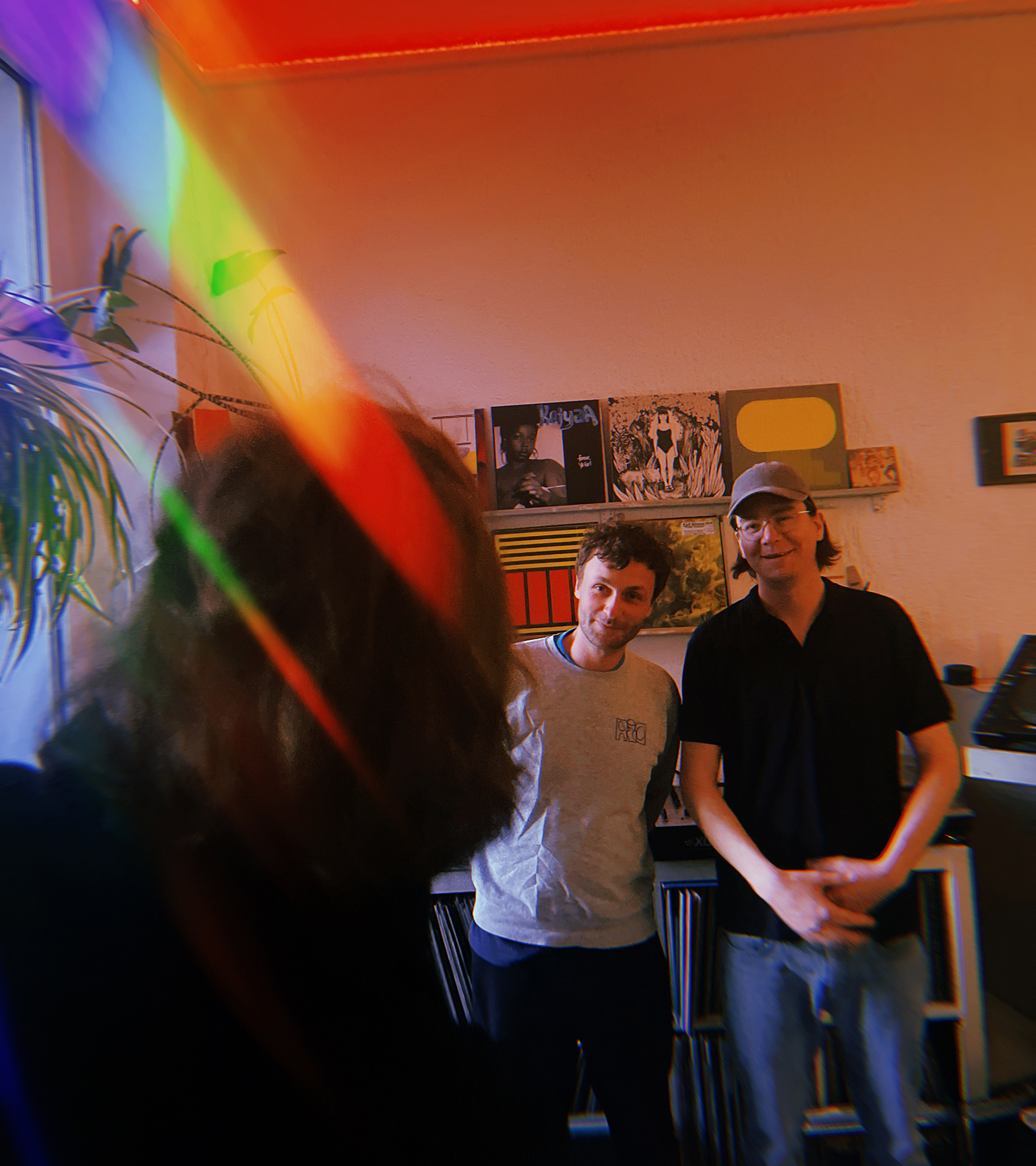

Q. Do you prefer working alone, or do you seek out collaborations with other artists? What do you look for in a collaborator?
A. That really depends on the person(s) you work with. Everything can be a blessing or a curse… I’m pretty open-minded towards collaborations. And I think you can „gain“ sicker material by doing music in a group…. But as everywhere in nature, skills should be complementary. For example, you should have a balanced group searching for peace and happiness within the group. When somebody initiates the „istudiedthat-mode“ or it's getting too „testosteronish“, I’m out.
Q. You’ve released on labels like Live at Robert Johnson, Créme Organisation or ESP Institute. How do you decide which tracks fit which label?
A. I’d say it’s all been trial and error. Releasing music hasn’t always been easy. A few records in my past didn’t turn out the way they were originally promised or planned. Realising that - accepting it - was exhausting. Most of the time, it’s been (and still is) hard, convincing work. The one real exception was with ESP Institute. That story feels kind of romantic. Andrew reached out and said he wanted to release my first album - and that I’d have total freedom to do whatever I wanted. A blessing and a curse, right? But that kind of creative freedom was completely new to me, and honestly, it was refreshing. The result was “Artificial” - probably the most authentic solo album I’ve done in my career. It’s really a fusion of everything I admire.
Q. Your early records feature house and techno, and your latest records breakbeat, leftfield electronics, dub, and new wave. How would you describe your stylistic evolution over the years?
A. NATURAL PROGRESSION. Maybe from „clean-griddy-atmospheric-minimal-techno“- to a „roughly-broken-stillatmospheric-space-bass-electronica producer.
Q. How did your involvement with groups like Dolphins and INIT shape your approach to solo work? Did playing in bands influence your electronic productions?
A. YES, for sure. In a very good way. I was never in a band - I never really learned to play any instruments. But those little musical excursions with others showed me how exciting it can be to create with like-minded people. It also pulled me away from being so focused on club music. Turns out, sounding a bit like a band can be a lot of fun!
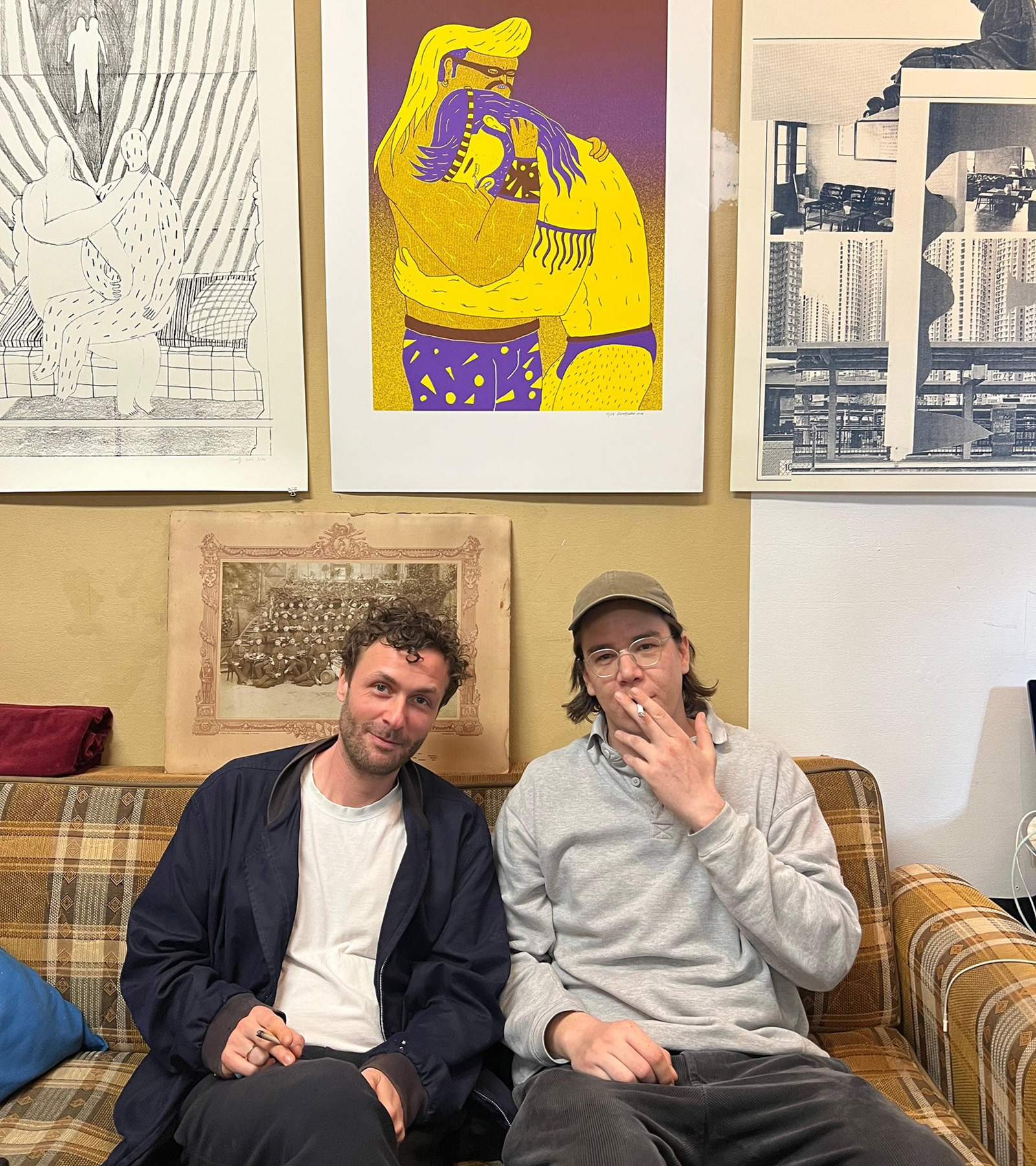

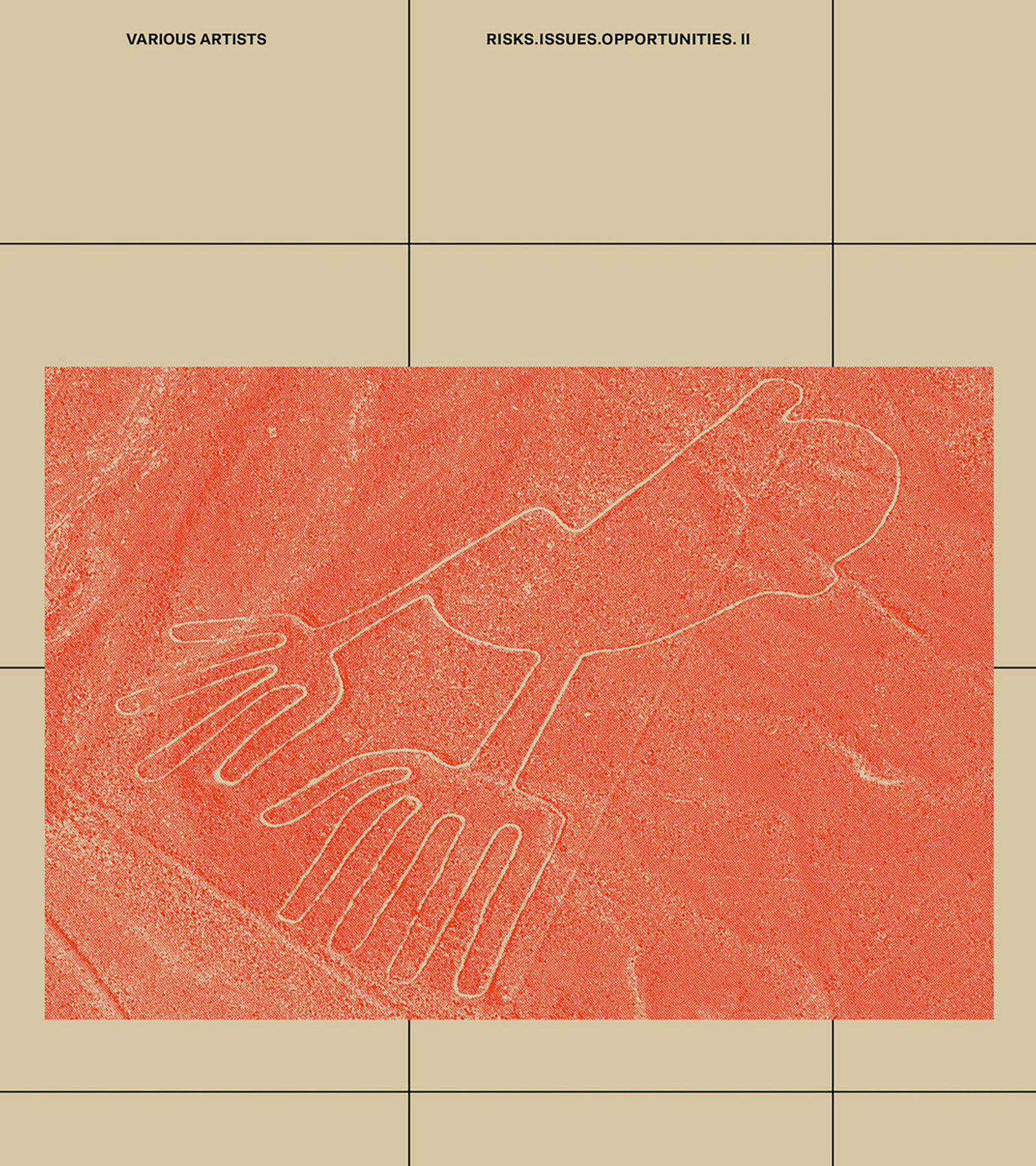

Q. And Menqui, how would you describe your very own musical identity as a solo artist, distinct from your work in collaborations or with R.i.O.?
A. I would say that the music we curate for R.i.O covers a part of my musical identity. Additionally, I don’t really limit myself and have a big interest in other genres and styles like more experimental jazzy stuff, psych funk or dub, to name a few examples. Furthermore, I have a weakness for music from the 70s and 80s with not only, but often German or Austrian lyrics, which might be considered by some as more obscure. I am quite quick in deciding if I like something or not. If it “speaks” to me, I will play it no matter what.
Q. You did a few remixes for artists like Don’t DJ or Palms. How do you approach other people’s work when you remix their work? Is there any formula you work with?
A. I would not consider myself a producer, but when time allows, I sometimes work on stuff. Occasionally, I get asked for remixes and try my best to deliver something which would add to the release. I just play around and see what happens by cutting, adding effects and layers. Fresh Out Of My Oven is a remix for a Czech artist called Vítězslav Špalek, which will come out on Columbo Records later this year.
Q. Have there been any particularly memorable studio sessions or collaborations in the last few years?
A. My label partners Nadia D’Alò and Benedikt Frey have a beautiful studio nearby where I live. We sometimes gather there and simply JAM. It’s a big pleasure for me to sit down and start playing with some synthesisers. Normally, everything is running, and I can just enjoy the fun part of "making music“. This is also how our Dolphins Album “40G” was recorded. We had endless sessions at their place, and I really feel comfortable working together with them. Normally, we record different sketches, and Benedikt finalises them in the following days, weeks or years. It’s always a nice surprise to hear what we did when he sent over the first version. The good thing is we mostly don’t take things too seriously; that’s why a lot of freaky stuff is allowed to happen. Currently, we are working on a new remix for „Hoshina Anniversary“ from Japan, which will come out as a 7“ later this year on R.i.O.
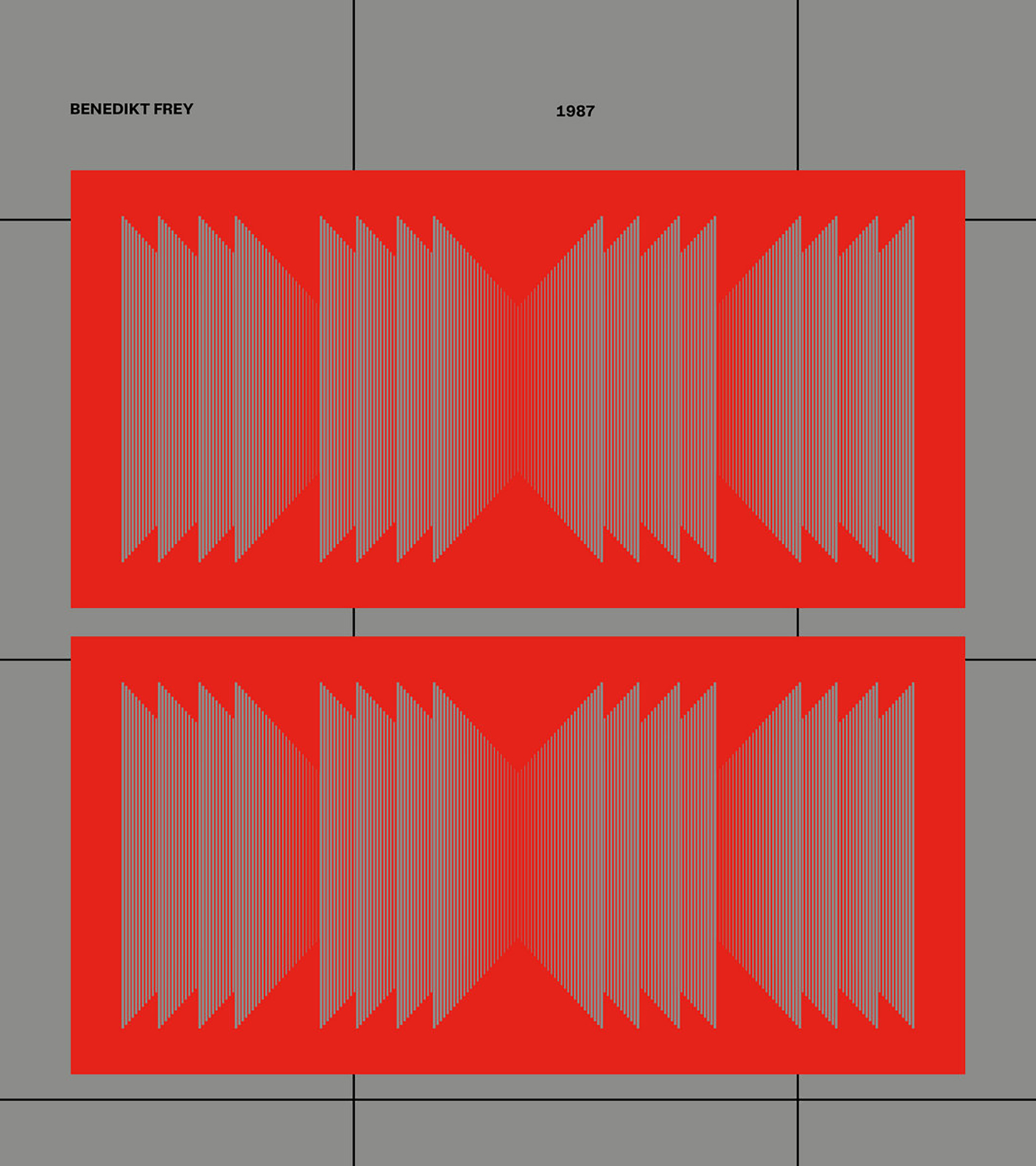

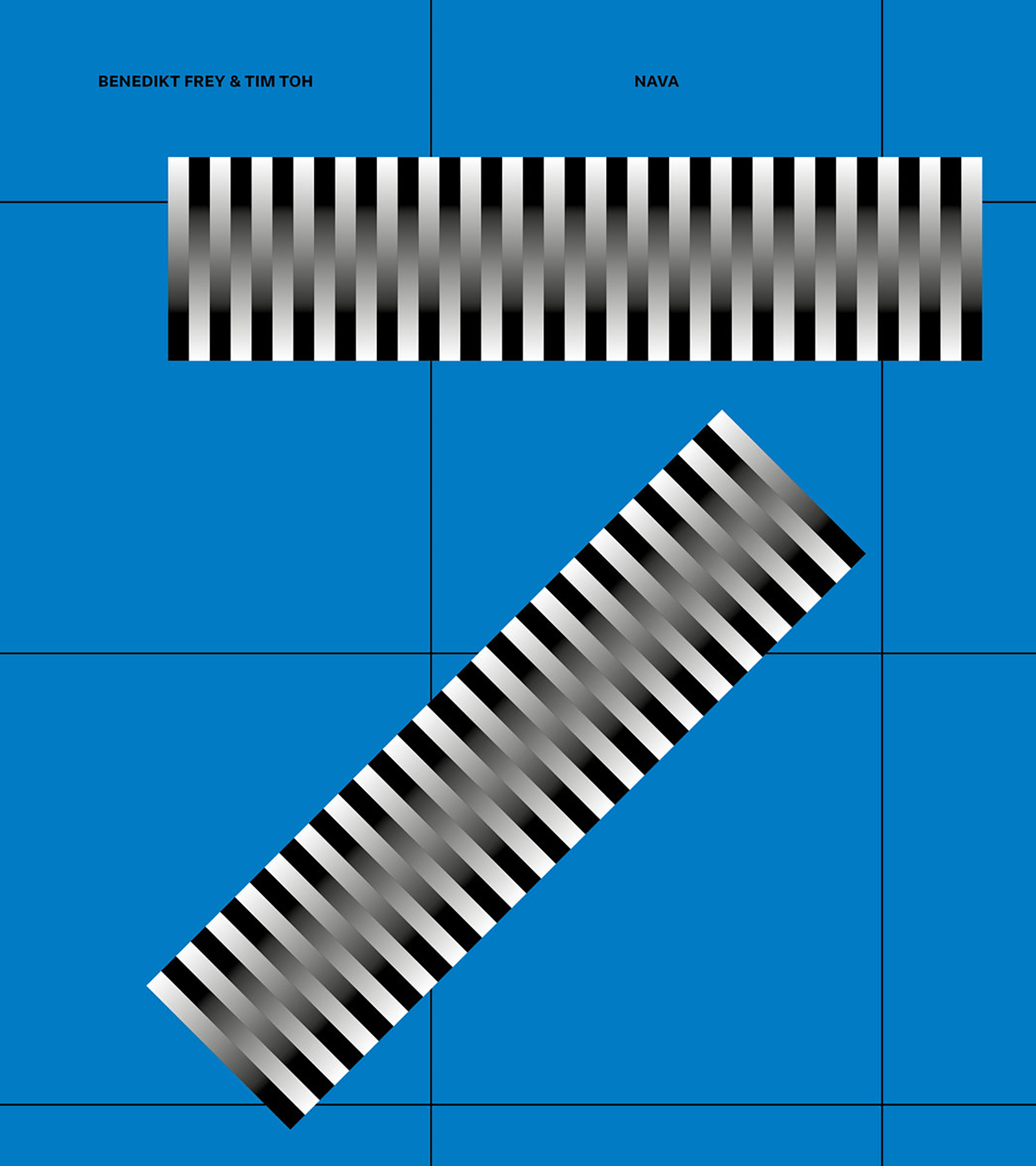

Q. Is there a particular setting - club, open-air, warehouse - where you feel your way of djing resonates most powerfully?
A. I can name a few like Braille Satelite in Lithuania, Karl Kutter Stage at Fusion or former Camp Cosmic, which are amongst my favourite festivals with a very open-minded crowd. Talking about Berlin venues, I can point out places like Sameheads or O-Tannenbaum, for example, or the newly established “Listen Listen” events which take place at different venues. Since 2017, I have run a monthly radio show called „''Past Forward“ on Cashmere Radio together with Kryptic DJ and Hendrik Stein. It‘s a lovely community and a great space to hang out.
Q. What’s a recurring theme or emotion you aim to convey through the music you play as a DJ?
A. I choose music according to my playtime and the vibe the promoter is aiming for while staying flexible at the same time. It has always been an exchange of energy between the DJ and the crowd. I’d bore myself if I couldn’t adjust spontaneously to people’s reactions. My aim is somehow to create a soothing but still danceable vibe where the listener trusts my decisions and is curious about what comes next. I see myself more as a musical guide behind the booth than an entertainer. Music with some complexity and depth inspires me more than playing „happy“ songs all night long. I like to let things flow, as you’ll hear in our mix.
Q. When you both launched R.i.O., what was the original vision behind the label, and how has it evolved since you started it?
A. After running the Serious Trouble label for a few years, we felt like starting something new - an outlet that brings together music you can really listen to, but that also works on a club system. Something that lives in both worlds.
Q. How do you divide responsibilities when running the label? Do you have distinct roles?
A. The three of us curate new music together and make joint decisions about where we want to take the label. Menqui mostly handles the organisational and admin side of things. Benedikt and Nadia stay in touch with our mastering engineer, and the artists, and also run our social media. We try to meet up regularly to keep each other in the loop and stay on the same page.
Q. R.i.O. has a very distinct aesthetic, both musically and visually. How important is the visual identity (artwork, design) to the label’s ethos?
A. We’re lucky to be working with Omnigroup from Switzerland. Benedikt and Menqui have known Simon for a long time - they’re from the same hometown. Simon runs Omnigroup together with Leo, and we’re genuinely grateful to collaborate with them. Over time, we’ve realised how important it is to stay visually consistent if you want to build a strong identity, and they’ve really helped us bring that to life.
Q. What’s the story behind the name R.i.O.? Does it hold a particular meaning for you both?
A. The label name can have different meanings. One of our running options is “Risks Issues Opportunities”
Q. How do you discover and select artists for R.i.O.? Are you looking for a specific sound, or is it more about personal connection?
A. It’s both. We love to work with people we know and admire musically. Sometimes we receive demos from people who approach us. For example, we recently received music by Aroma von Troisdorf, a talented artist from Dorsten. His Album will be released in autumn, and we are very happy that he thought of us. The music fits perfectly, and the record will hold tracks from very spaced-out tunes to super krauti danceable material. After more than five years of doing the label, we also look forward to deepening our relationships with artists who already released on R.i.O..
Q. As artists running a label, how do you navigate the challenges of today’s music industry (streaming, vinyl production delays, etc.)?
A. For a label like ours, which isn’t focused on mainstream releases, things can get financially tight. Physical sales have been dropping, especially as more DJs shift to playing digital-only. On the flip side, downloads and streaming are growing, but the revenue from those is basically peanuts. The payouts from the big platforms just aren’t fair. That said, we’re lucky it still works out somehow and we know that wouldn’t be possible without the support of our friends at Omnigroup, as well as our mastering team - Falko Eidner and Sebastian Blume and Michel Leuffen, who is writing all our press texts. We’re genuinely thankful to have them in our corner.
Q. What can we expect next from R.i.O.? Any upcoming releases, collaborations, or special projects?
A. We just dropped a record by Brainwave Research Centre called Psychic Antenna, featuring remixes from Nadia D’Alò, Benedikt Frey, and Nathan Dawidowicz. Next up, we’ve got an album called POOL JAMS by INIT - the project of Nadia and Benedikt - coming out in June. After that, we’ll be taking a short summer break. Later this year, we’ve got a 7-inch coming from Japanese artist Hoshina Anniversary, including a Dolphins remix. Then, we’ll be following that up with an LP by Aroma von Troisdorf, which we mentioned earlier.
Photo credits: Studio Hendrik Stein
